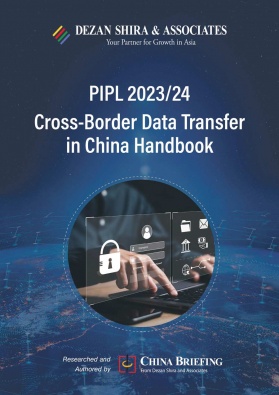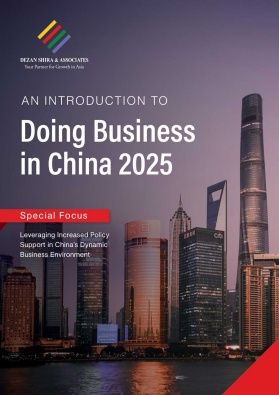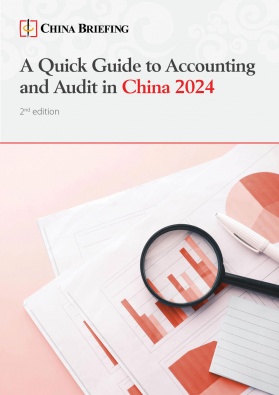Hong Kong’s Cosmetics and Skincare Market – Trends and Industry Overview
The Hong Kong skincare market is set to make a healthy recovery following the impact of the COVID-19 pandemic. While Hong Kong’s industry is dominated by international trade, local demand is also helping to drive market growth and creating new long-term trends. In this article, we look at the latest data on Hong Kong’s cosmetics and skincare industry and discuss the new consumption habits influencing the market.
Hong Kong is home to a thriving cosmetics and skincare market. Despite challenges posed by business closures and lockdowns during the COVID-19 pandemic, Hong Kong’s cosmetics and skincare market has shown resilience, and analysts project optimistic growth prospects for the industry.
Hong Kong’s pivotal role as a regional trade hub underscores its reliance on imports and exports, with re-exported cosmetics forming a significant portion of the trade and skincare market. This interconnectedness with global markets presents both opportunities and challenges for local players, who are overwhelmingly focused on trade.
Within the domestic market, the middle class and the proliferation of social media are driving demand. The market remains relatively fractured, with multinationals coexisting with smaller and more niche enterprises, fostering an environment ripe for innovation and competition. Meanwhile, amidst the whirlwind of social media microtrends, a few key long-term trends present new opportunities for companies.
In this article, we provide an overview of Hong Kong’s cosmetics and skincare market, looking at the latest trade figures and trends that will shape the industry in the years to come.
Hong Kong skincare market
Hong Kong’s cosmetics market has suffered during the COVID-19 pandemic, as international trade slumped and domestic demand fell under lockdowns and business closures.
Despite this, industry analysts are optimistic about the market’s future trajectory. Statista Market Insights projects that the cosmetics market will grow at a CAGR of 2.19 percent between 2024 and 2028, while the skincare segment will grow at a CAGR of 1.81 percent over the same period.
According to estimates from the US International Trade Association (ITA), Hong Kong’s cosmetics market reached a total value of US$2.45 trillion in 2023. This is a decrease of 38.6 percent from 2022, as the pandemic continued to impact the economy.
Domestic production of cosmetics forms a very small part of the supply of cosmetics in Hong Kong, with total local production reaching a value of just US$227 million in 2023, according to estimates from the ITA.
Due to Hong Kong’s position as a major regional trade hub, Hong Kong’s cosmetics market is dominated by imports and exports. Moreover, the majority of cosmetics exported out of Hong Kong are in the form of re-exports, with re-exports accounting for 99 percent of total exports of eight major cosmetics product categories, per data from the Hong Kong Census and Statistics Department (C&SD).
The Chinese mainland is one of the main destinations for re-export trade, accounting for around 63.2 percent of total re-exports of eight major cosmetics categories in 2023, according to data from the C&SD. Other major destinations include Japan, the US, and South Korea.
Hong Kong also imports a large amount of cosmetics products. In 2023, Hong Kong imported around HK$43.43 billion (US$5.55 billion) in cosmetics, beauty, and skincare products (including beauty accessories such as make-up brushes, powder puffs, and pads). The vast majority of this (90 percent) consisted of “beauty or make-up preparations and preparations for care of the skin”.
South Korea is by far the largest source of imported cosmetics to Hong Kong, accounting for 37.45 percent of total imports in 2023. The remaining portion is less concentrated, with France taking the second spot at 15.45 percent of total imports, followed by Japan with 12 percent, the US with 7.5 percent, and the Chinese mainland with 5.7 percent.
Due to this phenomenon, Hong Kong’s cosmetics industry is dominated by trading companies. At the end of 2022, there were a total of 90 manufacturing enterprises and 2,520 trade-oriented cosmetics enterprises in Hong Kong, according to HKTDC, citing statistics from the C&SD.
Competitive landscape of the Hong Kong skincare market
In terms of market competition, Hong Kong’s cosmetics industry has a relatively low concentration, although a few multinationals hold a substantial market share.
As in many other markets, the largest market players include multinational luxury brands such as Chanel, Dior, Estee Lauder, and SK-II, to name a few. However, only Chanel holds a significant market share on its own, at 17 percent in the cosmetics segment and 9 percent in the skincare segment, according to data from Statista Market Insights.
Trends in the Hong Kong skincare market
The cosmetics and skincare industry is highly dynamic, with skincare ingredients or make-up colors constantly shifting in and out of fashion. As with the fashion industry, social media serves to accelerate changes in tastes and preferences, creating so-called beauty “microtrends” that may last only a matter of months.
Hong Kong’s beauty industry is heavily influenced by the trends occurring in neighboring Asian countries, most notably South Korea. Online skincare and makeup influencers are increasingly shaping consumer behaviors and purchasing decisions, amplifying the impact of trends across digital platforms. This digital transformation has significantly altered the way beauty products are marketed, sold, and consumed in Hong Kong.
However, Hong Kong’s beauty industry is also undergoing longer-term and more permanent shifts that will shape the industry in the coming years.
Online shopping
As in the rest of the world, the share of online retail of consumer products is growing, with e-commerce platforms offering convenience and accessibility to a broader range of products.
In Hong Kong, offline sales of cosmetics and skincare products still dominate, with department stores hosting a vast array of international beauty brands. Meanwhile, cosmetics retailers remain highly popular. While this market is dominated by the likes of the home-grown Watsons, foreign retailers such as Sephora have also expanded into the market.
Despite the continued popularity of in-person shopping, the online revenue share of cosmetics and skincare is gradually increasing. The pandemic served to accelerate this trend; in 2019, the online revenue share of cosmetics was 18.2 percent, while in 2022 it stood at 24.9 percent, according to Statista Market Insights. The 2022 figure was slightly lower than in 2021 (28.3 percent), but the jump from the pre-pandemic figures indicates a permanent shift. This change was even greater for skincare products, with online revenue share increasing from 15.3 percent in 2019 to 22 percent in 2022.
Personalization and customization
Another major trend in the beauty market is a turn to increased personalization and customization, particularly among younger generations. Brands are responding to this demand by offering customizable skincare routines, bespoke makeup products, and personalized beauty services.
This trend has also fostered the creation of small and innovative skincare companies that provide personalized skincare routines or even bespoke formulas for customers. These boutiques may offer in-person consultations or allow consumers to fill in an online questionnaire to offer a customized product or service. Due to the higher level of resources required, these offerings usually come at a premium cost. While this trend tends to favor more niche brands, larger companies are also jumping on the trend by recommending skincare and make-up routines customized to the customer, but while still utilizing off-the-shelf products.
Natural and organic products
Meanwhile, there is a growing emphasis on natural cosmetics and skincare products among consumers in Hong Kong. This has led to an increase in the availability of natural skincare options, with brands formulating their products using botanical extracts, plant-based ingredients, and other naturally derived components. This shift towards natural cosmetics and skincare aligns with the evolving preferences of conscious consumers and reflects a broader movement towards “clean beauty” in the industry.
Men’s grooming
Another sector with significant potential is men’s grooming. Traditionally dominated by women’s products, the men’s grooming sector is now witnessing a surge in demand driven by shifting societal norms and evolving perceptions of masculinity. Men increasingly embrace skincare and grooming routines as part of their self-care and personal hygiene practices. Factors such as the desire to maintain a youthful appearance, professional grooming standards in the workplace, and increased exposure to influencers on social media have contributed to the growing acceptance and adoption of men’s grooming products.
The men’s grooming sector also opens up opportunities in a range of more niche products, such as specialized products tailored to men’s distinctive skin care needs and expectations.
About Us China Briefing is one of five regional Asia Briefing publications. It is supported by Dezan Shira & Associates, a pan-Asia, multi-disciplinary professional services firm that assists foreign investors throughout Asia, including through offices in Beijing, Tianjin, Dalian, Qingdao, Shanghai, Hangzhou, Ningbo, Suzhou, Guangzhou, Haikou, Zhongshan, Shenzhen, and Hong Kong in China. Dezan Shira & Associates also maintains offices or has alliance partners assisting foreign investors in Vietnam, Indonesia, Singapore, India, Malaysia, Mongolia, Dubai (UAE), Japan, South Korea, Nepal, The Philippines, Sri Lanka, Thailand, Italy, Germany, Bangladesh, Australia, United States, and United Kingdom and Ireland. For a complimentary subscription to China Briefing’s content products, please click here. For support with establishing a business in China or for assistance in analyzing and entering markets, please contact the firm at china@dezshira.com or visit our website at www.dezshira.com.
- Previous Article China’s Stock Exchanges Announce ESG Reporting Guidelines for Listed Companies
- Next Article How to Conduct a Personal Information Protection Impact Assessment in China













